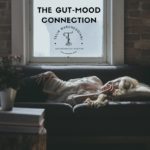As soon as exams screamed to a halt, I embarked on my summer reading list starting with When the Body Says No, by Canadian author and medical doctor, Gabor Maté. This book explores the mind-body connection, the relationship between stress, especially due to familial relationships, and the onset of disease.
Health is achieved on the mental, emotional, physical and spiritual level therefore, according to Maté, disease is never only physical. Prolonged stress and anxiety take a toll on the body and affect the immune system, making the body more susceptible to disease and reducing the capacity of the body to heal itself.
In the final chapter of When the Body Says No, Dr. Maté outlines the 7 A’s of Healing, which one must embark on to heal from any disease.
1) Acceptance. People who suffer from autoimmune disease often suffer from harsh self-judgment and self-criticism. They often feel unworthy of love and unable to ask for help. In order to begin the healing process we must look upon ourselves with the same compassion that we often reserve for our close friends and family members. It doesn’t mean that we have to blindly love everything about our personality and physical body, but to simply acknowledge that we are good enough and worthy of the help that we would recommend a friend seek if he or she were in our shoes.
2) Awareness. In order to heal it is important to develop awareness of our emotions, rather than cover up how we’re feeling. Being in touch with how we feel on a physical level on a regular basis and noticing when we’re under stress is an important part of being in tune with the body. When practiced regularly, this enables us to learn what our body is asking for and what it needs at any given moment, creating better self-care practices.
3) Anger. Being able to express anger in healthy, constructive ways is crucial to maintaining a life free from disease. Studies show that those who repress anger or harbour hostility and frustration without expressing it, often suffer from a variety of different diseases. In our society we are taught to be fearful of anger but repressing anger triggers a heightened stress response, contributing to an increase in physical, mental and emotional stress. Gabor Mate has this to say about dealing with anger in a healthful way, “Anger is a physiological process to be experienced. Second, it has cognitive value. Since anger does not exist in a vacuum, if I feel anger it must be in response to some perception on my part. I am greatly empowered without harming anyone if I permit myself to experience the anger and to contemplate what may have triggered it.”
Once the anger is recognized, not repressed due to fear, we are able to decide what to do with it. We may choose to simply experience it or to turn it into a few choice actions; perhaps some words or deeds that may help to assert ourselves or to re-establish the boundaries that may have been broken.
4) Autonomy. Creating boundaries is essential for health. it is important to create boundaries to define who we are by asking the questions, “in my life or relationships, what do I desire, want more of, or less of, what are my limits?” When we begin to define ourselves by deciding our values and desires in life we being to develop an internal centre of control, making us less susceptible to stress and more in tune with our priorities and state of health.
5) Attachment. Numerous studies show that people who are surrounded by loved ones and can count on social support are less susceptible to illness and better able to recover from disease. Part of re-establishing social connection involves releasing the fear most of us have of being vulnerable. Being human means forming connections with others and it is important not to view a reliance on others as a sign of weakness or a release from independence.
6) Assertion. Gabor Maté found in his interviews with patients suffering from chronic disease that many of them felt undeserving of love. They often hid their true personalities and emotions from others for fear that they would not be accepted. Mate states that it is important to assert that fact that no one is required to justify their existence. Assertion is simply a statement of being. We are here and we are who we are. Everyone has the right to be here, to live and be loved.
7) Affirmation. Affirmation involves finding a means through which to channel creative expression in order to make ourselves heard and to hear our own voice projected through another medium. It also includes the spiritual connection to a power greater than ourselves, which is essential to any healing program. It is important to feel connected to the outside world, in contact and surrounded by love. Faith in a greater cause helps dissipate feelings of loneliness and isolation, which are great causes of stress and, eventually, disease.
For more information on the mind-body connection and how stress can contribute to disease pick up a copy of Gabor Maté’s book!






Thank you so much for posting this.
You’re welcome:) Thanks for commenting!
It’s all totally true… I’d been suffering from borderline personality disorders for about 15 years before I fell ill with scleroderma – autoaggressive disease of the connective tissue plus sort of various neurological symptoms. Before the diagnosis I’d also been in psychodynamic therapy that helped me a lot to mature and stop some self-harming ,,practices”. However, the disoreders were quite deep instilled in me and overa year ago after a year of severe stress at work (which I finally quit), I was diagnosed with scleroderma. Funny thing… the first light spots on my skin appeared in my dimples and on my cheeks – parts of the face associated with laughter and expressing joy and happiness. After a total change in eating habits (very healthy diet), sleeping habits, sports und sunlight ,,habits” almost all neurological symptoms disappeared. Scleroderma, however, is still progressing. I know it all happened because it’s a sign from my inner self and from my body that I did a lot of harm to myself and never loved myself, and it’s time to stop it. I feel ready now to shift all my life values and start loving myself for the first time in my life. I feel I am worthy of love and respect, of joy and happiness. My childhood was a sad story, always striving for perfection, feeling not good enough, feeling unimportant and invisible, always trying to protect my mum from my father – an alcoholic. I never respected my body, thought it could stand everything. I thought I was made of iron and can always exploit myself in order to please others and be the best one in anything I was doing. I know I’m on the right path to get healed and I’m going to bring my beautiful health back to me. The first step I’ve already taken is saying ,,no” to people whose wishes or requests aren’t in tune with my needs or emotional well-being. At first I felt some guilt or remorses, but I’m doing much better now. Of course, this is only the first step , the beginning of my journey… I’m ready for this journey. Monika
Hi, Monika,
Thank you for sharing your inspiring story. It sounds like you’ve been through a lot but have also embarked on a wonderful healing journey of growth. I wish you the best on that journey. Learning to love ourselves is truly hard to do. I struggle it with daily. Thanks for visiting this site and for commenting! – Talia
Hello Talia,
thank you too. I came across your website when searching for some interpretations or ellaboration on dr Mate’s 7 A’s of healing. You’re right, I’ve gone through a lot, but quite recently I’ve managed to accept it all. It doesn’t hurt so much anymore. The best thing you can do with a vicious circle is to break with it. I see you’re much into literature on mind-body connection, so I can also advise you to read a book by Kurt Tepperwein. Its German title is: ,,Was dir deine Krankenheit sagen will” (,,What your disease is trying to tell you”.) I guess it’s translated into English too, unless you speak fluent German. The last thing I need to tell you (and can’t resist doing so) is the meaning of your first name in Polish. ,,Talia” means ,,waist” (especially in women) or ,,talia kart” (a deck of cards). Anyway, it sounds nice and familiar in Polish. I’ll comment on how I’m doing after some time.
Best regards from Poland,
Monika